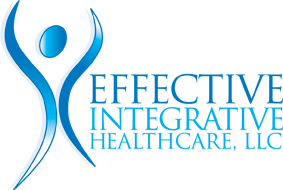How Common is Scoliosis & Who is at Risk?
Scoliosis Treatment in Millersville & Crofton, MD
Choose Effective Integrative Healthcare for Treatment
Effective Integrative Healthcare provides scoliosis treatment to patients throughout Millersville and Crofton, MD. Scoliosis is a more common condition than many would care to admit. Many of our patients have inquired about how to prevent scoliosis, but because its exact causes are not known, this spinal condition is not considered preventable. However, if you’re seeking scoliosis pain relief, you’ve come to the right place. The compassionate team at Effective Integrative Healthcare is here to help.
But First, What is Scoliosis?
Scoliosis is an abnormal lateral curvature of the spine that is often diagnosed in childhood or early adolescence. This sideways curvature of the spine can also occur in those with cerebral palsy and muscular dystrophy. Why it occurs in children and adolescents is unknown. Scoliosis symptoms include:
- Uneven shoulders or waist
- One shoulder blade appears more prominent than the other
- One hip higher being than the other
- One side of the rib cage jutting forward
- A prominence on one side of the back when bending forward
How Common is Scoliosis?
Scoliosis is a common medical condition that affects between two and three percent of the population in the United States—which is between six and nine million people. About 20 percent of people in the United States living with spinal deformities are actually living with scoliosis. Additionally, scoliosis is the most common spinal deformity among adolescents. The exact causes of this sometimes hereditary spinal condition aren’t entirely known. Genetically passed down scoliosis, also called idiopathic scoliosis, is the most common scoliosis type. Less common scoliosis types are thought to be caused by certain neuromuscular conditions, such as cerebral palsy or muscular dystrophy.
Types of Scoliosis
There are several different types of scoliosis due to there being several different ways that scoliosis can form. Scoliosis types include congenital, degenerative, neuromuscular, and idiopathic. Below, we’ve gone into detail about each of these types of scoliosis:
- Congenital Scoliosis: Sometimes, children are born with an abnormally-curved back, and sometimes, they have bone disorders that will cause their backs to curve later in life.
- Degenerative Scoliosis: When part of the spine is damaged due to injury or disease, it can start to bend. Degenerative scoliosis causes include trauma and osteoporosis.
- Neuromuscular Scoliosis: Sometimes called myopathic scoliosis, neuromuscular scoliosis can develop in individuals who cannot walk due to cerebral palsy or muscular dystrophy.
- Idiopathic Scoliosis: This is the most common type of scoliosis, and research suggests it is inherited from parent to child and, therefore, genetic.
What To Do When Your Back Hurts From Scoliosis
When scoliosis pain reaches unbearable peaks, the first thing to consider is scoliosis treatment without surgery. There is scoliosis self-care, and then there are scoliosis exercises. If scoliosis treatment at home, such as painkillers like ibuprofen, is insufficient, then it’s time to visit a professional for care.
Who is at Risk for Scoliosis?
Anyone can get scoliosis, but females are more likely to have idiopathic scoliosis than males. Idiopathic scoliosis is the most common type of spinal condition and usually occurs in children 11 years of age and older. This type of scoliosis is more likely to occur if you have a family member who also has it. The primary age range for the onset of scoliosis is 10 to 15 years of ages. However, females are much more likely to have scoliosis that progresses and requires treatment.
Contact Us Today About Scoliosis Treatment
At Effective Integrative Healthcare, patients can find various ways to cope with scoliosis pain. If you or your child is suffering from scoliosis, please consider visiting our state-of-the-art facility. We offer a wide range of treatments for mild to severe scoliosis cases. To learn more about our scoliosis treatment options or to schedule a consultation with one of our expert team members, contact us today.

